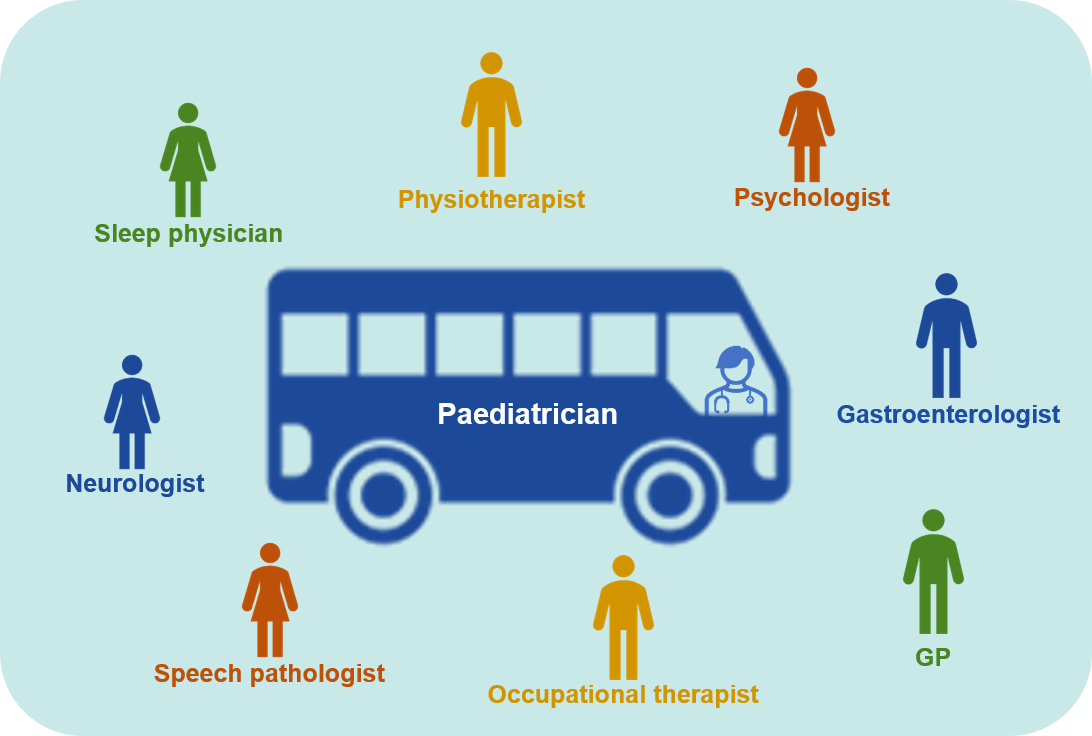Paediatricians are specialist doctors who provide medical care for babies, children and teenagers.1 2 3
They have at least 6 years of specialist training in paediatric medicine.
This means they have comprehensive training and experience in many different conditions and illnesses that can affect children’s health, welfare, behaviour and learning.
One of the many roles of the paediatrician is to help coordinate care and advocate for their patients.
The paediatrician is like the driver of the bus. They can direct management and liaise with all subspecialists and allied health professionals. They can also champion the child’s needs.

Ideally, it is best to see a local paediatrician regularly who will have a close working relationship with your GP and other healthcare providers in your local area.
- Visiting the paediatrician only during a crisis is not ideal.
- Regular appointments mean health concerns can be discussed early and addressed.
- It also enables you to discuss chronic (ongoing) issues.
- The visits to the paediatrician may at times also lessen the need for additional appointments.
- Paediatricians work across either the public or private health system, giving you options on which to choose.
As well as regularly monitoring your child's health and all aspects of their condition (comorbidities), your child’s paediatrician can:
- Monitor and review all aspects of her care, including development, learning and growth.
- Monitor treatment.
- Coordinate care of all your healthcare providers to ensure appropriate and timely reviews.
- Advocate for support services such as the National Disability Insurance Scheme (NDIS) for your child.
- Liaise and advocate for resources with your child's school as needed.
- Assist if emergency care is required locally.
- Provide support for your child and your family throughout your healthcare journey.
What this means is...
Your Paediatrician is an important member of your child's healthcare team.
They can oversee and help coordinate your child's care.
They will also provide valuable support for you and your family.
------------
Content on this page was generated via the GenE Compass project. The following article provides more information about the project:
- Robertson EG, Kelada L, Best S, Goranitis, I, Grainger N, Le Marne F, Pierce K, Nevin, SM, Macintosh R, Beavis E, Sachdev R, Bye A, Palmer EE. (2022). Acceptability and feasibility of an online information linker service for caregivers who have a child with genetic epilepsy: a mixed-method pilot study protocol. BMJ Open, 12:e063249. https://doi.org/10.1136/bmjopen-2022-063249
- 1Paediatrician. Raising Children: https://raisingchildren.net.au/guides/a-z-health-reference/paediatrician
- 2What do paediatricians do. Health Direct: https://www.healthdirect.gov.au/what-do-paediatricians-do
- 3Paediatricians. The Royal Children's Hospital Melbourne: https://www.rch.org.au/kidsinfo/fact_sheets/Paediatricians_about/